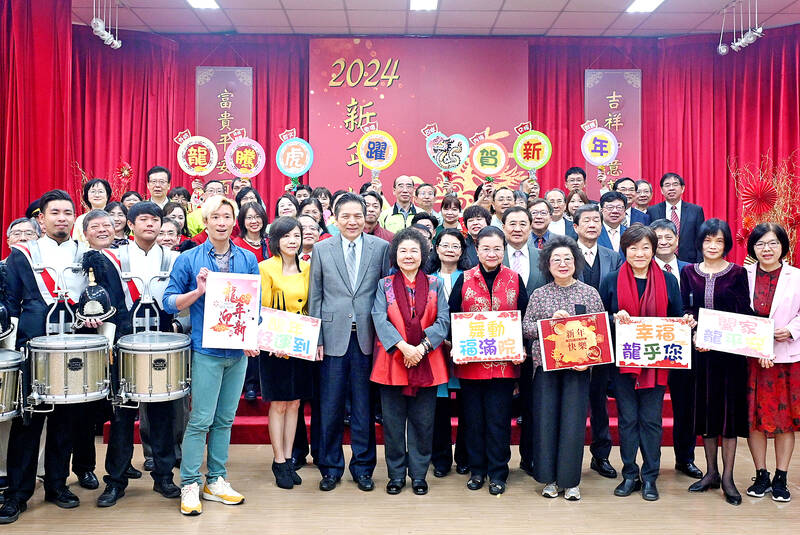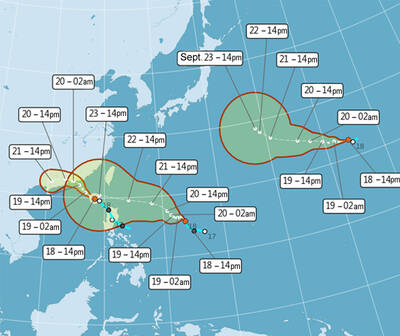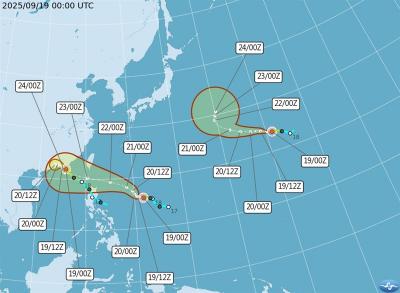Calls to increase powers of oversight for legislators go against the separation of powers stipulated in the Constitution, Control Yuan President Chen Chu (陳菊) and Democratic Progressive Party (DPP) politicians said yesterday.
The Constitution is based on a framework of five branches of the central government, as envisioned by the Republic of China founders in the original Constitution in 1947.
The five branches are executive, legislative, judicial, examination and control, which are designed to work independently.

Photo: Wang Yi-sung, Taipei Times
“We respect the discussion by lawmakers on the issue, but Taiwan is a nation based on the five-power Constitution, with each branch having its independent authority and function,” she said. “We will adhere to our nation’s constitutional framework.”
DPP members have accused the Chinese Nationalist Party (KMT) of attempting a “power grab” through “unconstitutional expansion of authority” of the Legislative Yuan.
The KMT has been pushing for legislators to have powers of investigation and hearings, similar to the US Congress.
KMT Chairman Eric Chu (朱立倫) yesterday reiterated the calls, saying that lawmakers should have the authority to evaluate and oversee government departments, approve or reject ministerial appointments, investigate misconduct, and reprimand or impeach government officials.
“The KMT has the most seats in the legislature and we will work together ... to serve the wishes of the people,” Chu said. “We demand to have truth and justice for all, and will carry out needed reforms.”
He dismissed remarks by DPP politicians that granting lawmakers such powers would be unconstitutional as they duplicate the functions and authorities of the Judicial Yuan and the Control Yuan.
“Such talk by DPP politicians is anti-democratic and regressive,” he said.
“The KMT seeks to have the same powers as other democratic countries,” he added.
“It is vital to have these powers and the central government must not disregard the will of the people,” Chu said.
Earlier, DPP caucus whip Ker Chien-ming (柯建銘) said that the KMT was working to “dismantle the Constitution and ruin government authority.”
Its plans would have serious consequences, Ker said.
“The Constitution stipulates the separation of powers... The Legislative Yuan does not have the power of investigation or to conduct hearings,” he said. “This is a clear and definitive principle of the constitutional framework.”
He also criticized KMT caucus whip Fu Kun-chi’s (傅?萁) proposal to re-establish the Ministry of Justice’s “special investigation division.”
The division was abolished due to abuse of power by KMT officials, Ker said.
“What powers does Fu and the KMT want to add to the Legislative Yuan?” he asked.

NEW AGREEMENT: Malaysia approved imports last year after nearly two years of negotiations and inspections to meet quarantine requirements, officials said Up to 3.6 tonnes of pomeloes from Taiwan cleared Malaysian customs on Friday, in the first shipment of Taiwanese pomeloes to Malaysia. Taiwan-grown pomeloes are popular in domestic and overseas markets for their tender and juicy taste, the Ministry of Agriculture’s Animal and Plant Health Inspection Agency said. The fruit is already exported to Japan, Canada, Hong Kong, Singapore and the Philippines, it added. The agency began applying for access to the Malaysian market in 2023, compiling data on climate suitability, pests and diseases, and post-harvest handling, while also engaging in nearly two years of negotiations with Malaysian authorities and submitting supplementary

PEAK MONTHS: Data showed that on average 25 to 27 typhoons formed in the Pacific and South China seas annually, with about four forming per month in July and October One of three tropical depressions in the Pacific strengthened into a typhoon yesterday afternoon, while two others are expected to become typhoons by today, Central Weather Administration (CWA) forecaster Lee Ming-hsiang (李名翔) said yesterday. The outer circulation of Tropical Depression No. 20, now Typhoon Mitag, has brought light rain to Hualien, Taitung and areas in the south, Lee said, adding that as of 2pm yesterday, Mitag was moving west-northwest at 16kph, but is not expected to directly affect Taiwan. It was possible that Tropical Depression No. 21 would become a typhoon as soon as last night, he said. It was moving in a

Tigerair Taiwan and China Airlines (CAL) today announced that several international flights were canceled or rescheduled due to Typhoon Ragasa. The Central Weather Administration (CWA) has maintained sea and land warnings for the typhoon. Its storm circle reached the Hengchun Peninsula (恆春半島) on Taiwan's southern tip at 11am today. Tigerair Taiwan said it canceled Monday's IT551/IT552 Taoyuan-Da Nang, IT606/IT607 Taoyuan-Busan and IT602 Taoyuan-Seoul Incheon flights. Tomorrow, cancelations include IT603 Seoul Incheon-Taoyuan, as well as flights between Taoyuan and Sapporo, Osaka, Tokyo Narita, Okinawa, Fukuoka, Saga, Tokyo Haneda, Nagoya, Asahikawa and Jeju. On Wednesday, the IT321/IT322 Kaohsiung-Macau round-trip would also be canceled. CAL announced that today's

Three tropical depressions yesterday intensified into tropical storms, with one likely to affect Taiwan as a typhoon, the Central Weather Administration (CWA) said. The three storms, named Mitag, Ragasa and Neoguri, were designated as storms No. 17 to 19 for this year, the CWA said. Projected routes indicate that Ragasa is most likely to affect Taiwan, it said. As of 2am today, Ragasa was 1,370km east-southeast of Oluanpi (鵝鑾鼻) on the southernmost tip of Taiwan. It was moving west-northwest before turning northwest, slowing from 11kph to 6kph, the agency said. A sea warning for Ragasa is unlikely before Sunday afternoon, but its outer rim